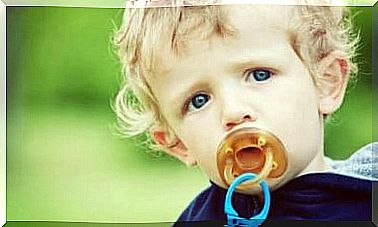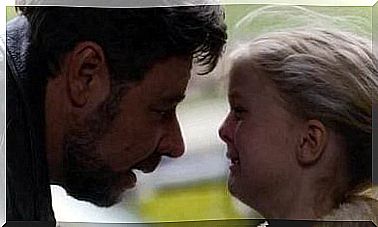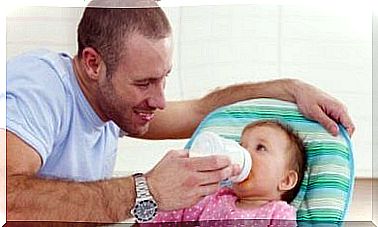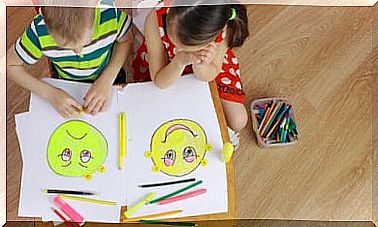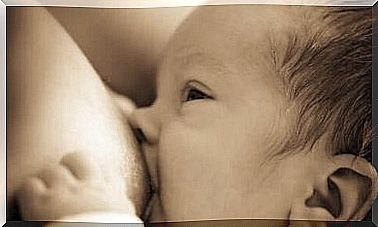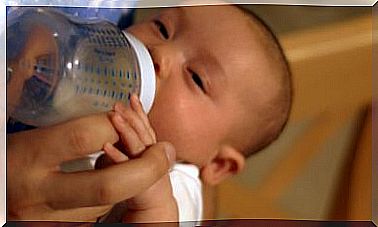The Sense Of Guilt In Children: Attention!

Although childhood is an apparently “simple and light” phase of growth, the inner world of children is richer and more complex than we might think. When we are small, we begin to develop beliefs and emotions that will accompany us throughout our life, among them, the sense of guilt.
What is guilt?
In children, guilt can be defined as an emotional restlessness that occurs after doing something wrong or that hurts others. It is because of the particular nature of children that guilt has a special impact on them.
This emotion is powerful, harmful and paralyzing. If we don’t learn how to manage it properly in childhood, it can affect our personality and actions throughout our lives.
Where does the sense of guilt in children come from?
Undoubtedly, guilt is not something innate that we carry with us from birth, but it is a social feeling that we learn and experience through our experiences.

Much of our vision and relationship with guilt depends on the education received from our parents and teachers. As children we observe adults who judge and blame others and themselves and, unconsciously, we imitate their role model.
It is very common for adults to use guilt as an educational method to show children the consequences of their actions. In these cases, it is very important to have and teach a conscious and consistent discipline that is not based on the uncontrolled emotional reactions of the adults themselves.
Blame or responsibility?
As humans, we all make mistakes in life. Sometimes, we behave in a way that, sooner or later, we recognize as wrong. It is then that the type of education with which we were brought into play comes into play and, based on it, we privilege feelings over others.
The harm of guilt in children
A child raised to feel guilty is used to being subjected to inflexible judgments. If you continually stress what the child is doing wrong, it will damage his self-esteem. This type of accusation does not lead to reflection and to act accordingly, but to stagnation and blockade.
The child who lives this type of experience will remain anchored to that emotional distress because he has not received the teachings to manage it in any other way. This situation can affect your life by causing insecurity, fear and self-discrimination.
In addition, it has an influence on his interpersonal relationships. A child raised with guilt is more vulnerable to this emotion and can easily be manipulated or become a manipulator himself.
Children educated to be responsible
It is necessary to make children understand the difference between good and evil and to establish norms and limits, but it must be done by making them understand the importance of being responsible.
The main difference with this approach is that the natural consequences of one’s acts are highlighted and not the sanctions and punishments. We must promote the moral autonomy of children by guiding them to act according to values and not under the obligation or fear of something.
You need to help them think constructively about their actions and possible consequences. When you recognize the mistake, the secret is to quickly find a way to remedy and learn from your mistakes. When you have done this, the negative emotion must disappear. Staying stuck in your mistakes only causes unnecessary suffering.
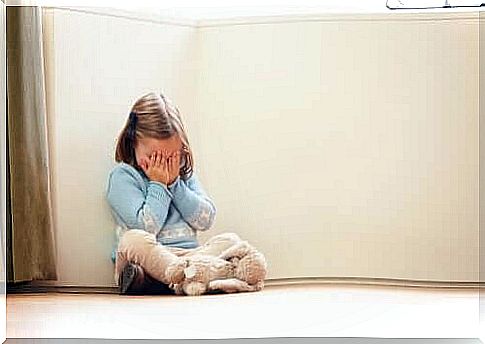
How can we educate children to be responsible and not to feel guilty?
- First of all you have to control and be responsible for your emotions. One of the behaviors that hurt children the most is when parents make them feel guilty because of their anger or discomfort. Remember that you are responsible for your emotions and should not blame your children for your moods.
- Teach your children to “limit” guilt. Help them reflect on their share of responsibility and on what does not concern them. Let them understand that they don’t always have to feel guilty or be too demanding of themselves.
- Encourage them to express their emotionality. Being able to express and share guilt helps them to come out of isolation and manage it better.
- Always stress the importance of actions, of reflecting on mistakes and of taking action to remedy or, if this is not possible, of asking for forgiveness. We must not become paralyzed because of the discomfort we feel.
